Customer Services
Copyright © 2025 Desertcart Holdings Limited
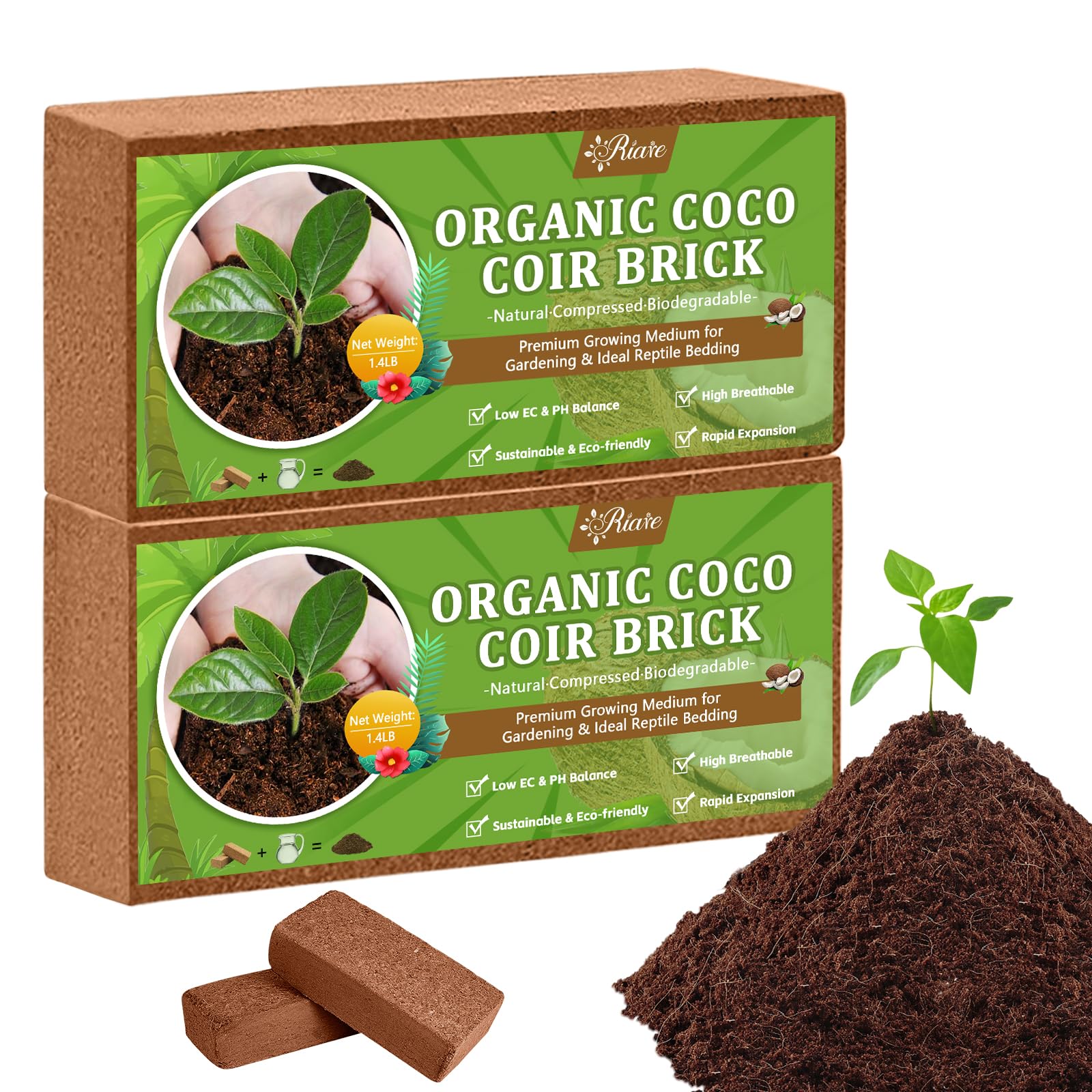


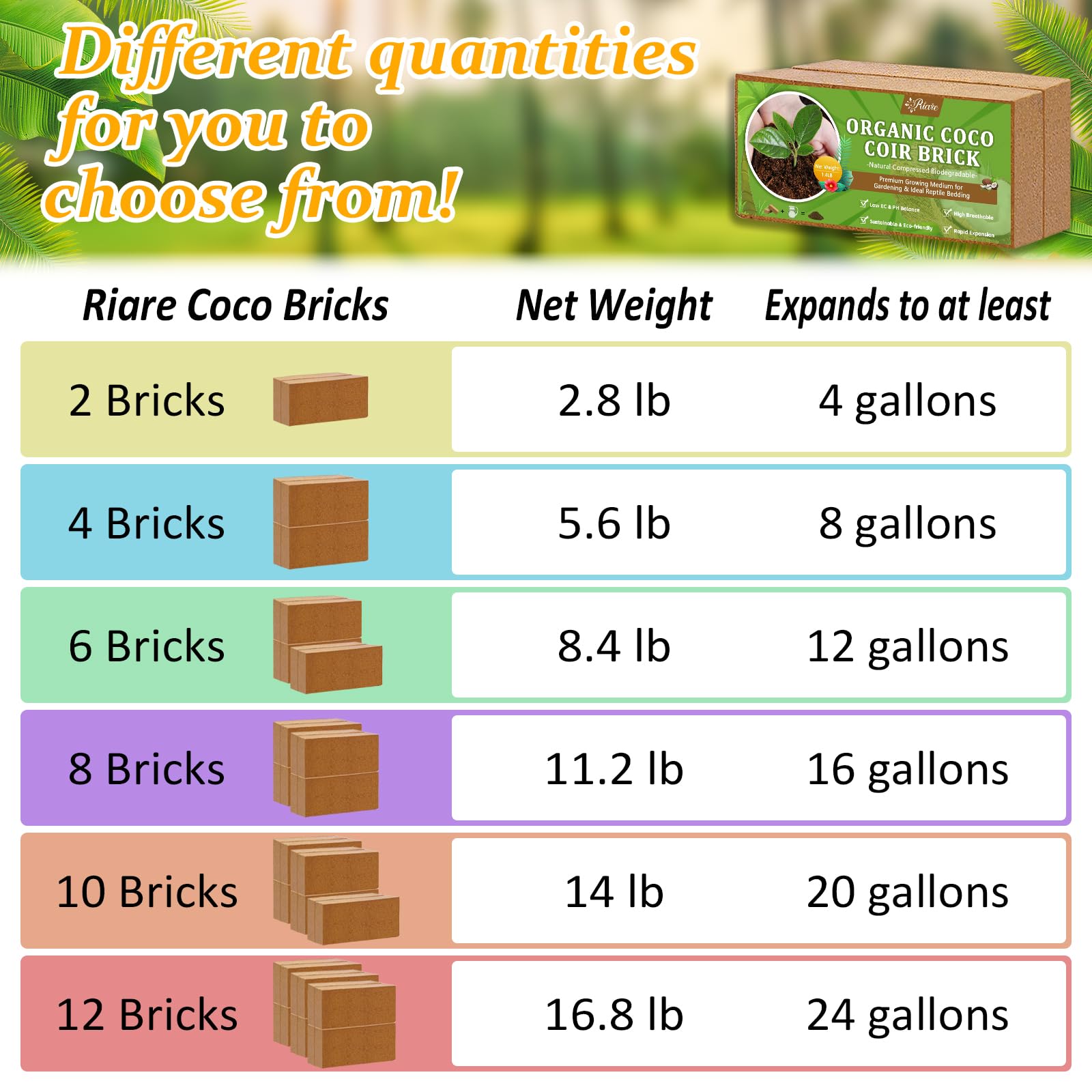

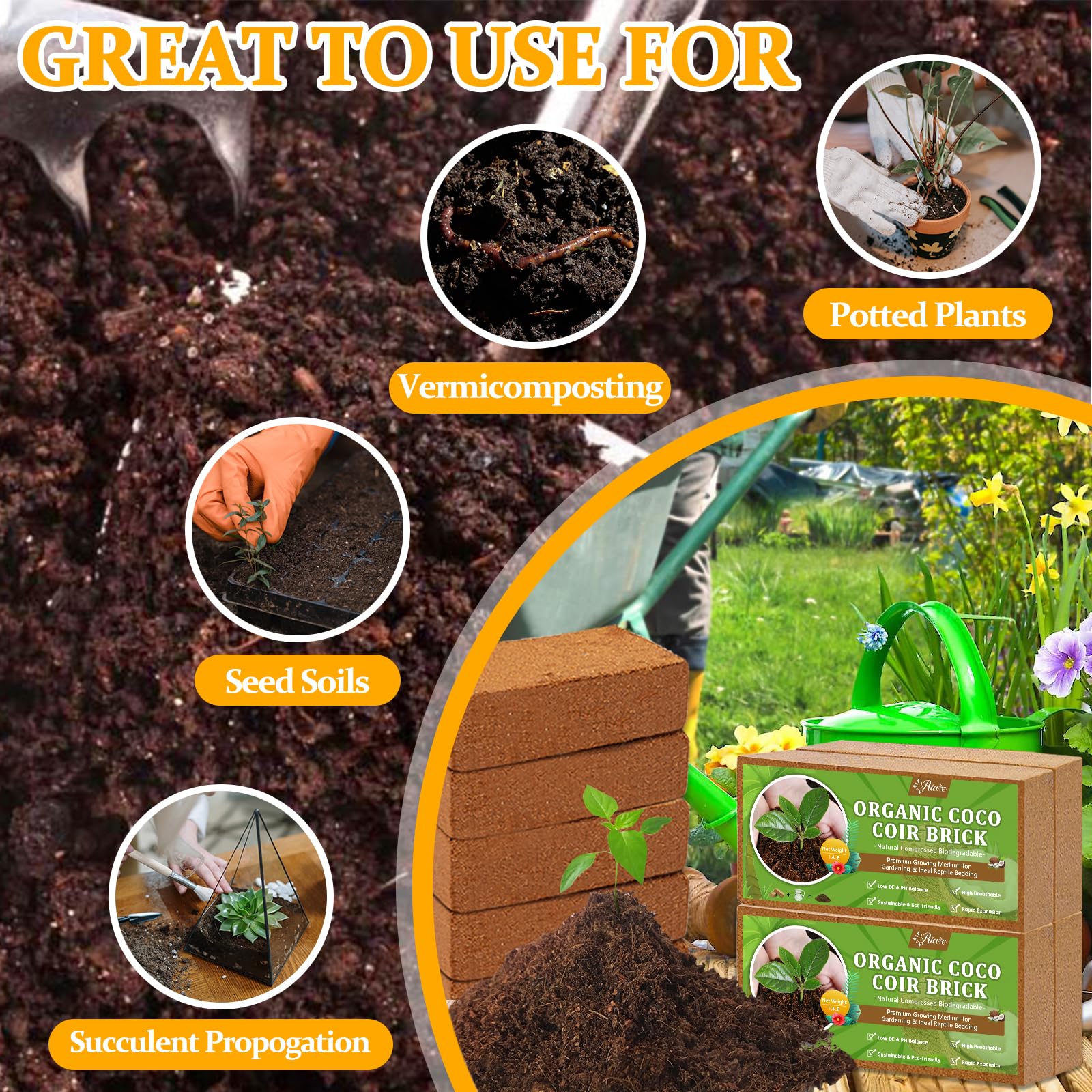
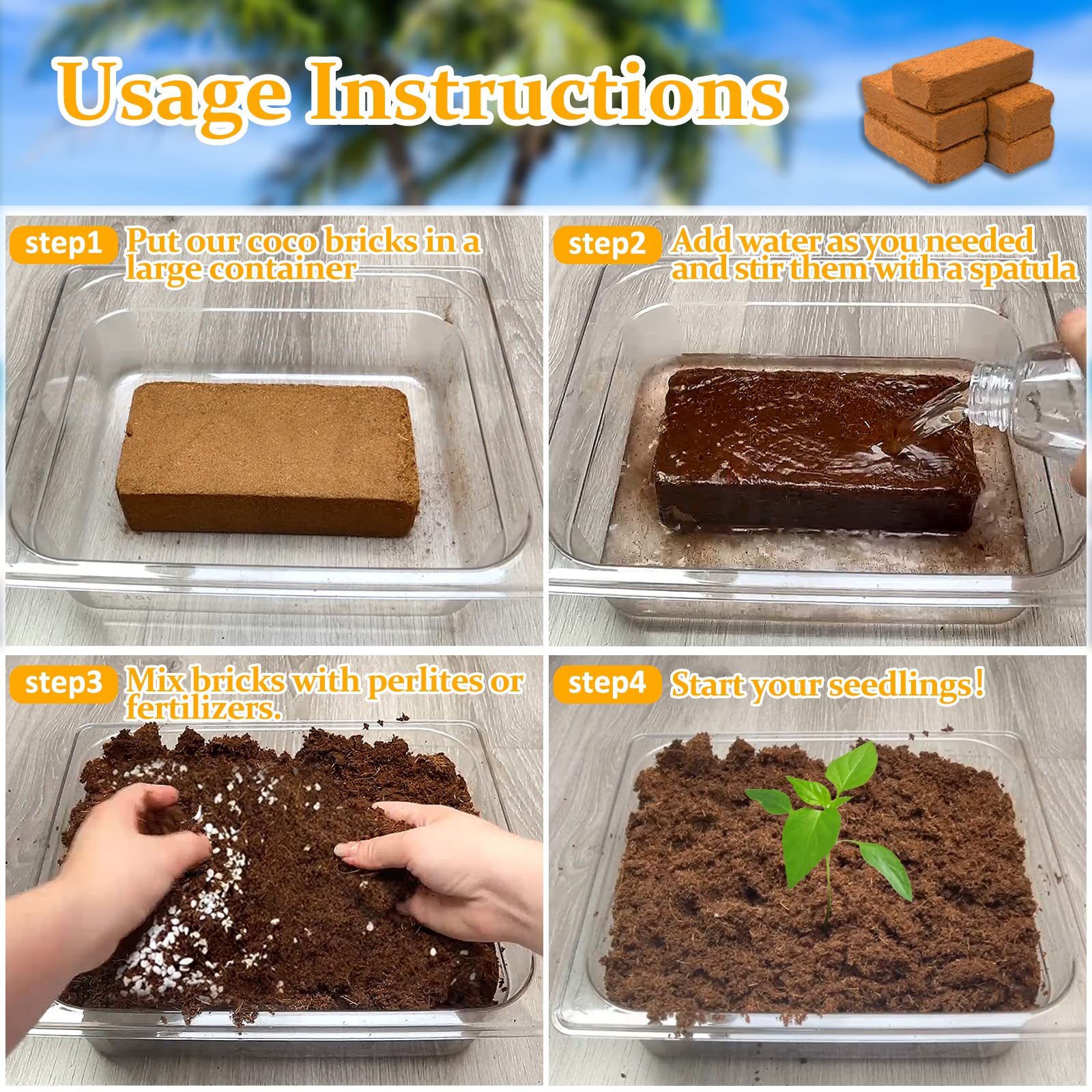
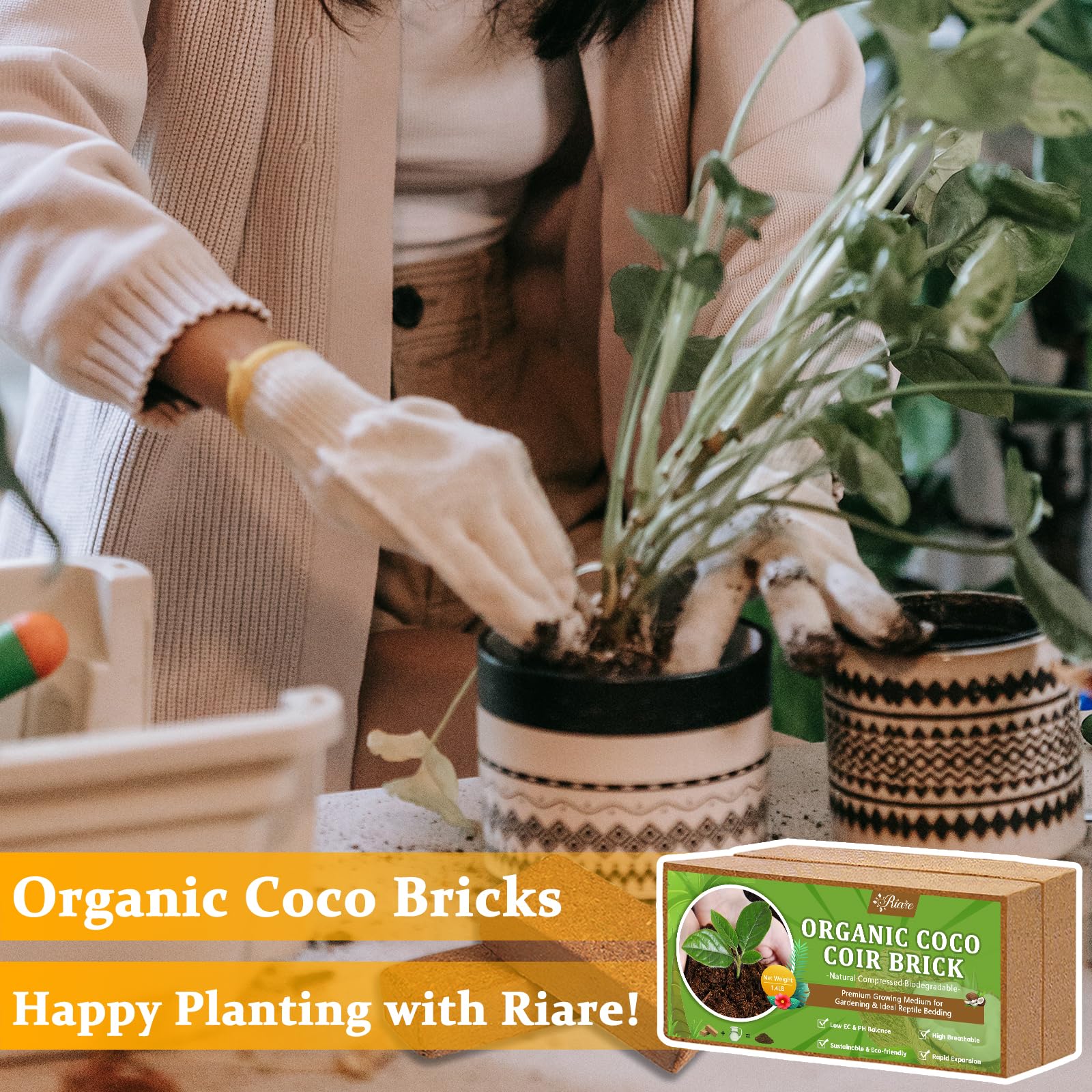
🌿 Grow Green, Live Clean! 🌍
The Riare 2pcs Organic Coco Coir Bricks are 100% natural, compressed coconut fiber substrates designed for optimal plant growth. Each brick measures 8 x 4 x 2 inches and weighs 1.4 lbs, expanding significantly when hydrated. With low electrical conductivity and balanced pH, these bricks provide an excellent growing medium that retains moisture while promoting healthy root development. Ideal for various gardening applications, they are a sustainable alternative to traditional peat moss.






Trustpilot
2 months ago
3 days ago